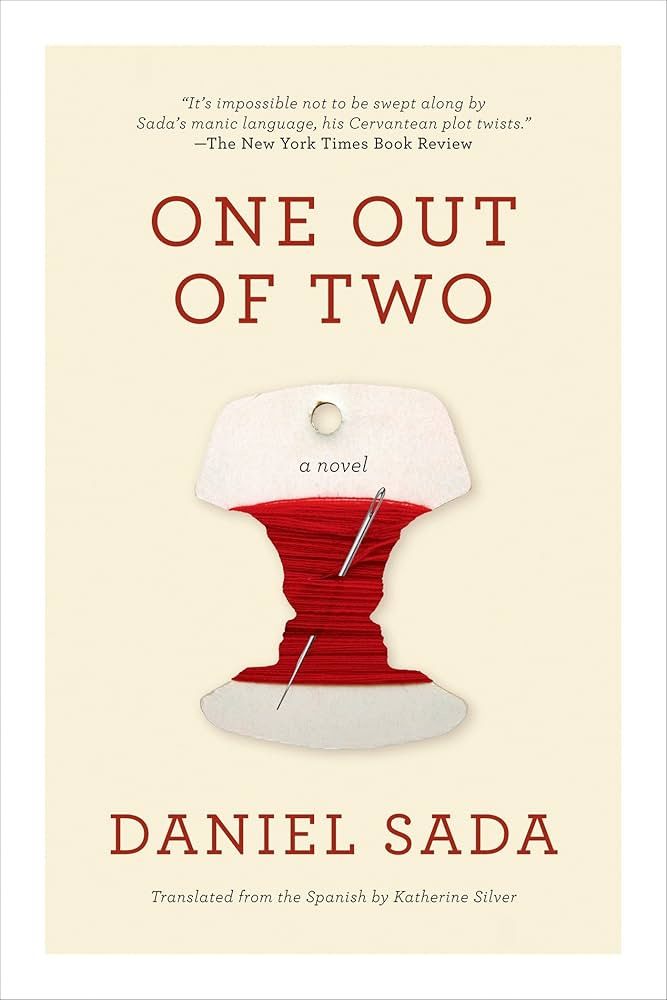July Books
Lydia Davis, Eça de Queirós, Daniel Sada
The Collected Stories of Lydia Davis, by Lydia Davis (2009)
Most of July’s reading time was spent chiseling away at the 700-some pages of Lydia Davis’ Collected Stories while simultaneously trying to keep the puppy from eating the coffee table.
Reading all of these stories back-to-back, often in 2 to 3 hour sessions, was a slightly disorienting experience and probably not the way I would read this book if I were to do it all over again. Many of these stories are incredibly short, anywhere between a single sentence to a page or two, like “Companion”:
We are sitting here together, my digestion and I. I am reading a book and it is working away at the lunch I ate a little while ago.
or “Spring Spleen”:
I am happy the leaves are growing large so quickly.
Soon they will hide the neighbor and her screaming child.
She sprinkles in some longer stories, but regardless of length, none of them really have much of a plot and focus on totally commonplace, banal aspects of daily life. They unfold from a single idea, thought, or punchline that Davis had, the kind of thought you have in the shower or while driving your car. Like “Letter to a Funeral Parlor”, which seems to have spun out of the oddness of the word cremains:
Dear Sir,
I am writing to you to object to the word cremains, which was used by your representative when he met with my mother and me two days after my father’s death.
We had no objection to your representative, personally, who was respectful and friendly and dealt with us in a sensitive way. He did not try to sell us an expensive urn, for instance.
What startled and disturbed us was the word cremains. You in the business must have invented this word and you are used to it. We the public do not hear it very often. We don’t lose a close friend or a family member ver many times in our life, and years pass in between, if we are lucky. Even less often do we have to discuss what is to be done with a family member or close friend after their death. [….]
At first we did not even know what he meant. Then, when we realized, we were frankly upset. Cremains sounds like something invented as a milk substitute in coffee, like Cremora, or Coffee-mate. Or it sounds like some kind of a chipped beef dish.
Or “Thyroid Diary”, a brilliant bit of paranoid rambling from a woman who is trying to gauge how much her perception of reality is dictated by her thyroid problems:
Another question I had recently was this: Is the rather pessimistic turn that my thoughts have taken these days due to the state of the world, which is bad and which gets worse more quickly than one can hope to save it, so that I become quite scared? Or is it due simply to the low level of my thyroid hormone, which would mean that maybe the world is not really in such a frightening state and seems that way only to me? SO that I could say to myself: Remember your low thyroid hormone level and have faith that the world will be all right?
Davis’ stories consist of a singular, central gimmick told with the straightest of faces. Sometimes the joke seems to be on the reader, like in “We Miss You: A Study of Get-Well Letters from a Class of Fourth-Graders, in which we are served (or maybe forcefed) a forensic close reading of letters written by children to a classmate who was hit by a car and suffered a case of osteomyelitis that landed him the hospital for months. Its one of the few stories in which Davis stretches her legs and it is essentially anti-humor, nearly 30 pages of stuff like this:
COMPLEX SENTENCES
Aside from the frequent formulaic complex sentences beginning with “I hope” (e.g., “I hope you get better”) and “I wish” (e.g., “I wish you saw it”), there are relatively few instances of complex sentences:
Fred: “Well I guess this is all I have to tell you.”
Theodore: “I beat the boys who were against me.”
Alex: “This year I went on to a higher part than I used to.”
Susan B.” “Jonathan A. told me that he send [sic] you a big box of candy.”
Kingsley has to complex sentences in succession: “What do you think you are going to get for Christmas?” and “I got every thing I wanted to get.”
Despite being slightly exasperating at times, there is a kind of magic in these stories akin to watching old machinery run. They feel too simple to work, yet they do.
Adam and Eve in Paradise (1897), by Eça de Queirós, translated from the Portuguese by Margaret Jull Costa (2025)
These next two books I selected because it was July 29th, they were the thinnest of my shelf of library books, and I wanted something else to talk about here besides Lydia Davis. But now having read them, I feel I don’t have much to say.
Eça de Quierós’ Adam and Eve in Paradise was not what I expected. I thought it was going to be a play on the biblical story, told sideways in someway, maybe giving voice to biblical figures we tend to only see looking sad in oil paintings, like an early version of something like Saramago’s Cain. Instead what Eça gives us is Homo erectus, rearing up on his hind legs for the first time and stretching out his opposable thumbs. Its a story of survival and invention, as Adam discovers fire, agriculture, and tool-making, told in a fun mock-serious tone:
And let us not forget that, among the polite, rational creatures in Paradise, ready to appear in M. de Buffon’s noble prose, there were still a few of the grotesque monsters that sullied Creation before the purifying dawn of that twenty-fifth day of October. Jehovah did, however, spare Adam the degrading horror of living in Paradise in the company of that hideous monstrosity to which astonished paleontologists gave the name Iguanodon! On the eve of Man’s arrival, Jehovah, very charitablly, drowned the Iguanodons in a swamp, in a remote corner of Paradise, now modern-day Flanders.
I can be a sucker for this kind of all-knowing third-person narration, when its done well. It can feel expansive, limitless, and allows the writer ample room to fool around. Maybe its just because they’re both Portuguese that my mind is going here, but I do feel like you can see a clear line from this style of narration to the kind of work the aforementioned Saramago does in novels like Death with Interruptions. I also think this is a style of narration that can go horribly wrong. The writer can be too present, too chatty, aimless, too clever by half. This was a constrained and fun book, a quick read. I left it feeling that I’d like to read more books that take place in this kind of primordial ooze of pre- or early-human history. This was also the first thing I’ve read from Eça de Quierós, even though I’ve had The Crime of Father Amaro sitting on my shelf for years, and I find myself more curious about him as a writer than I was before.
One Out of Two (2002), by Daniel Sada, translated from the Spanish by Katherine Silver (2015)
One Out of Two is the story of two twins in rural Mexico who are orphaned when their parents die in a car accident. After a brief stay with a loving but overbearing Aunt, they set out on their own and set themselves up as successful sewists in a small town. From the tragic moment of their parents’ deaths, the two twins become more and more identical, not just in terms of their appearance, but in their thoughts and desires as well. This changes when one of the twins attends a wedding and meets a wealthy rancher and begins a courtship with him. Fearing the wedge this romance will drive between them, the two sisters hatch a plan to fool the rancher and hide the fact of their sisterhood from him, alternating who attends their weekly Sunday date.
I don’t know, this was an okay book. The narrative voice is very chatty in a way that keeps you reading but also annoys you. I also found myself distracted by this odd dynamic between Sada and his characters, in which I was constantly trying to measure the level of contempt he held for them. He is constantly calling finding new and clever ways to call them ugly, with lines like this:
“[…] Because until then—and here’s the truth—not even a horse had allows his gaze to linger longingly on either of them […]
It all feels a little gratuitous and the plot feels a little hackneyed, like some abortive attempt at a fairytale. I think in the end (spoiler alert) there is a slight redemption in its celebration of spinsterhood. The book ends the only way it plausibly could, with the sisters deciding to commit to the life they had built together, and dispensing of the man:
Also: whenever Constitución remembered Oscar, his huge restaurant, the weaning of she-goats, the fattening of swine, the lingering kisses there in the walnut grove, she would suddenly feel nostalgic and go look for that scrap of paper—the one she secretly stashed in one place after another and on which was written his address: the one in Ciudad Frontera. She did this secretly to avoid problems with her sister… Bah, in any case it was never more than an ephemeral game that flamed up and fizzled out like a dud... Then came a bitter day when she wanted to completely erase all the yesterdays. She took the blessed scrap of paper and, standing precisely in the spot where they had once burned those petulant letters from their aunt, lit a match to it. The address took flight: a warm and passing breeze, no longer worth even a peek.
I read something tragic on Daniel Sada’s wikipedia page. In 2011, he won Mexico’s National Prize for Arts and Sciences, but died a few hours later, before word could reach him.




